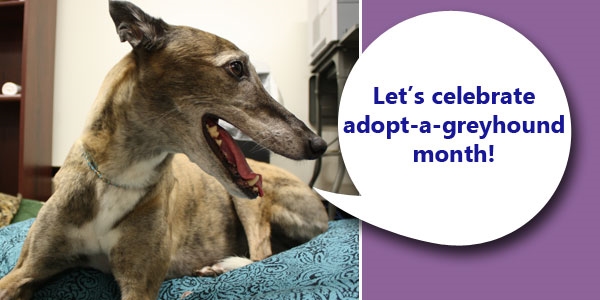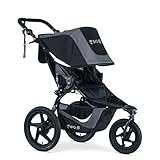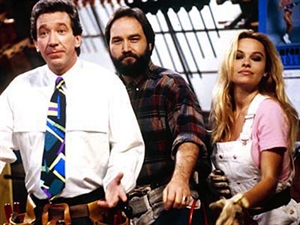Adopt A Greyhound Month on April, 2025: Greyhounds?
April, 2025 is Adopt A Greyhound Month 2025. Military Working Dogs Interested in Helping Military Working Dogs? Find Out More Here!
As an Amazon Associate I earn from qualifying purchases.

I have three (currently). One came home just after her second birthday, the other two were four when they retired. All of them are adopted. I also am an adoption volunteer and foster parent and have been around many different ages and types of greys. We live in an urban area (we're in a condo) and have a fairly large network of greyt friends in the area. Some of our friends live happily with cats. Some are happy being 'only' dogs. We have a playgroup that meets at a local dog park a couple of times a month, but many/most of the greys in our area get the majority of their excersise through leash walking.
Retired racing greyhounds are very low energy, low maintenance dogs. They have been nicknamed the '45mph couch potato' because they sleep 18-20 hours per day. Greys are sprinters - they have short bursts of energy and then they need to recuperate. The are a single coated short-haired breed who shed minimally(usually only seasonally). This means that they need coats in winter if you are in an area that gets cold. This also means that they cannot live outdoors.Greys are very quiet, they rarely bark.
Racing greyhounds are usually retired between 2-5 years of age. Greys are handled every day of their lives, from farm to training facility to racetrack so they are very docile, submissive dogs. A retired racer will always look to humans for leadership. They are taught leash manners and are easy to walk. They are crate trained, which translates very well into housebreaking. Contrary to popular belief the majority of racing greyhounds are treated very well during their careers (I can send you photos of a recent birthday party held in a racing kennel for one of the pups) and the majority (95-97%) retire to either the breeding shed or as pets. There are many adoption groups across the country who are working hard to make that number 100% in the near future.
Bringing a greyhound into your home can present some challenges. A dog coming straight from a track may never have seen mirrors, hardwood floors or stairs before. They have never had people touch them while they are asleep, and they never had any humans or dogs disturb them while they eat. They also may never have met other breeds of dogs. Most dogs adapt very well to living in a home and do it in a very short period of time.
Greyhounds are sighthounds. They can see a rabbit 1/2 mile away - and they were bred to be fast enough to catch that rabbit. For this reason they cannot be off leash unless they are in a fenced enclosure. When something (squirrel, rabbit, cat, plastic bag blowing in the wind) catches their eye they often react instinctually, even with the best of obedience training. Because they move so fast (45mph) very often a loose greyhound is a dead greyhound. They also do not do well on runs or retractable leashes - greys have broken their neck by trying to take off and being stopped. Their rate of acceleration is really awesome.
As to health problems, it is not true that they have hip problems. In fact greyhounds are the only large breed that does not suffer from hip dysplasia. This is because they have been bred exclusively for competition, not for looks. Musculo-skeletar imperfectsion DO NOT get bred on period. They also have a longer lifespan than many other large breeds, averaging 12-14 years. Some dogs retire with injuries and these dogs may be prone to arthritis as they age, but your adoption group would be able to tell you about specific problems that may come with the dog you acquire. It is true that greyhounds (and all sighthounds) are susceptible to complications from anasthesia. This is because there low body fat ratio means that when the anasthesia has been applied it effects them much sooner and they don't need as much as your average breed.
For more information about the breed, or to find an adoption group in your area check out . If you want more specific information please feel free to e-mail me.

Greyhound vs Whippet vs Italian Greyhound?
Please do adopt a retired racing greyhound (or racing school drop out if you want a young one).
Start here: :)
This adoption group does wonderful things in both rescue and adoption:
GALT - Greyhound Adoption League of Texas
www.greyhoundadoptiontx.org
I am not sure of their adoption fees - but most groups have adoption fees from $250-$350. They will work with you to match you with the perfect dog for your lifestyle and living situation.
When you adopt a greyhound, you save two lives - the one of the lovely greyhound you have adopted, and then it opens up a spot for the adoption group to bring in another dog in need.
These are dogs that have been handled all their lives, usually have stellar leash manners, and love to be with their people. They love to go places and do things with you, and with their manners and quiet demeanor they make great travel companions.
And they are just the right size for a good snuggle on a cold night!

Some questions about Greyhounds...?
Hi Kathryn,
I'm so pleased you're considering adopting a greyhound. I have two greyhounds myself, and I'm also involved in greyhound rescue, so I have some experience with these terrific pets. And as for doing your research, you're obviously a very responsible person any animal would be lucky to have as a Mom.
First, to respond to a couple of the answers you've already gotten:
Jiminy's answer about greyhounds having tons of energy is based on a very common misconception. They're bred to sprint, not to run all day long. A few quick zooms around an average sized yard, or a nice walk on a leash will tucker them out. Seriously. They tend to be active a few minutes at a time and then they sleep - a lot!
Babyjo18 is simply off base. Greyhounds are generally not aggressive at all (of course there are exceptions here as there are with any breed). Some of them have a high prey drive, which means they like to chase small furry things like chipmunks, squirrels, rabbits, etc. Not all have a high prey drive, and to call them aggressive and compare them to pit bulls is nothing short of laughable.
Now, for your questions:
1. As others have said, many rescue groups test for "cat tolerance", and you'll just need to specify that you have a cat in your home. I don't have a cat, but one of my hounds could care less if he sees a cat, the other one is not cat tolerant at all. They come in both flavors, and some are in between.
2. I've obedience trained one of my hounds (I just adopted the other recently), and it's very easy using a positive method like clicker training. They are smart and adaptable because of how they were raised.
3. 30 minutes will be too much for some greyhounds, particularly if it's hot outside. If you split the exercise into 2 sessions it would be better, otherwise I'd limit it to 15-20 minutes.
4. They require a bath 3-4 times a year (more if they get into the mud, of course), but they don't shed much, don't have much dander, and they generally don't get that "doggy smell". I clean my boys' ears every couple of weeks using cotton balls and ear cleaning solution from the vet, and I clip their nails at that time. That's all they need, unless you want to go the extra mile and brush their teeth.
Thanks again for considering adopting a greyhound, and for doing your homework before you bring one home. They are gentle, relaxed, loving pets who add a lot of joy to their families. I hope this helps!



















